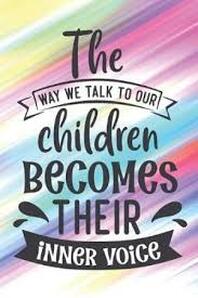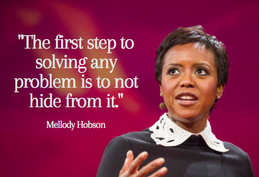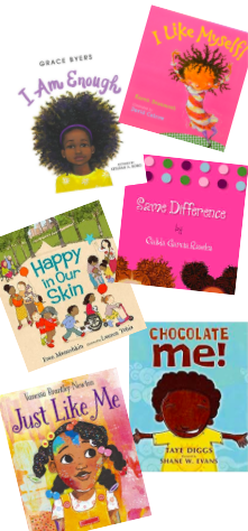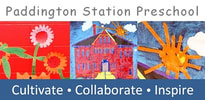 As Black Lives Matter protests continue across the country and the globe, many of us are grappling with our own questions on racism, white privilege, violence by police and how to do better moving forward. While we come face to face with our own biases and create our own voice for change as parents we are, in tandem, impacting and developing our child(ren)’s voice(s) as well. A popular phrase by Peggy O’Mara goes, “the way we talk to our children becomes their inner voice.” We must first become learners to then be their teachers. Using words and actions of kindness, inclusivity and empathy will guide our children to have inner voices that are kind, inclusive and empathetic. We have to show their eyes to see color, acknowledge it, appreciate differences and celebrate them.  Mellody Hobson addresses this in her TED Talk ‘Color Blind or Color Brave’ (toward the end at minute 12:15). She shares how the words of her mother are still in her head and led her right where she is today – President and co-CEO of Ariel Investments. Hobson is one of the only Black, female CEO’s of the thousands of publicly traded companies. While her talk is not intended for children, and mostly focuses on racial issues in business, she is a clear reinforcement that our words, as parents and educators, are important driving forces for our next generation. So, if you haven’t already started talking to your children about race, now is the time! Children as young as six months begin to recognize differences in skin color and hair texture. Wherever you are in navigating these conversations, it may be uncomfortable. That’s to be expected. Questions on how to raise anti-racist children, how to talk to little ones about injustice and brutality without inciting anxiety and fear, etc. will arise. We hope you are able to find the resources, both here and otherwise, that best help guide your conversations and tune your listening ears. You are likely pondering where to start. As a play-based school, we encourage you to take a look around your environment to evaluate the toys, dolls and books your children are playing with. Do they have materials that represent different races and the broader world around them? After evaluating play materials (which are also great tools to aide in talks about race) we hope you'll check out our list of resources primarily for addressing these issues with the preschool and young elementary group. We hope you’ll dive in now, and also come back to these again and again as the journey continues. Some of these resources are for you, the parent, and some, like the read-alouds, are resources you can engage in with your child(ren). We also encourage you to check out Great Books for Children on our website, particularly those sections on ‘Being Different’, ‘Diversity’, ‘Empathy and Bullying’ and ‘Social Emotional’. We will continually add new titles. If you have a book title to share, please pass it along! Our Paddington staff and faculty will continue to listen and learn with you. We are dedicated to continuing this conversation. We encourage you to share your thoughts, ideas, examples of how your family is addressing these conversations and any additional resources you have found to be most beneficial. This journey toward an anti-racist future depends on us. Articles for Parents on Racism, Race and How to Talk to Children How to Talk to Kids about Racism, Racial Violence and Police Brutality Why we love this article: It helps answers questions you may have about WHY to talk to you kids, HOW to talk to them without giving them more anxiety about the current state of the world than they already have and WHAT to say if they are worried about their friends and other people of color. Talking to Preschoolers about Black Lives Matter Why we love this article: Tiffany, a teacher and parent of a preschooler, talks with her son T.C. about important terms first and then uses concepts he can relate to such as patterns. 7 Ways to Highlight Resistance Efforts When Discussing Oppression with Children Why we love this article: Step by step guide for discussions + ends with how to mindfully include White people and removing the “White Savior” role. Raising Race Concious Kids Why we love this site: This website is dedicated to just what it says and has a great blog, workshops, podcast and more! Newlon Elementary Anti-Racism and Harmony What we love about this site: A fellow Paddington parent shared this new page presented by Newlon Elementary. Psychology Benefits Why we love about this site: They have created an entire blog series on Talking to Children about Race and Ethnicity. Each post is a must read! Watch and Listen With Your Kids  I Like Myself by Karen Beaumont Watch and Listen Buy a copy I Am Enough by Grace Byers Watch and Listen Buy a copy Same Difference by Calida Rawles Watch and Listen Buy a copy Happy in Our Skin by Fran Manushkin Watch and Listen Buy a copy Chocolate Me by Taye Diggs Watch and Listen Buy a copy Just Like Me by Vanessa Brantley-Newton Watch and Listen Buy a copy  Sesame Street Sesame Street: Whoopi’s Skin and Elmo’s Fur Sesame Street: Lupita Nyong’o Loves Her Skin Sesame Street Read-Aloud: We’re Different, We’re the Same Podcasts Talking Race with Young Children (NPR)
What we loved about this listen: They dive into issues of real families and how to help young children navigate racism and how to talk about the scary realities. How to Raise Anti-Racist Kids with Dr. Nzinga Harrison What we love about this listen: Dr. Nzinga Harrison lays out a 10-step plan for how to raise anti-racist kids and emphasizes throughout that this work start early! How to Talk About Race and Protests with Your Kids, Explained by a Child Psychologist What we love about this listen: They discuss the differences Black parents and White parents will have talking about the issues of racism and terms to use that preschoolers can relate to.
6 Comments
|
AuthorBlog posts are samples of our classroom blogs which are available through password protection to all current families. Archives
January 2022
Categories |
Photos from Marco Verch (CC BY 2.0), quinn.anya, Dzejsenka, evenkolder, SurFeRGiRL30, Littlepixel™, verchmarco, tatianasolera, ianpreston

 RSS Feed
RSS Feed